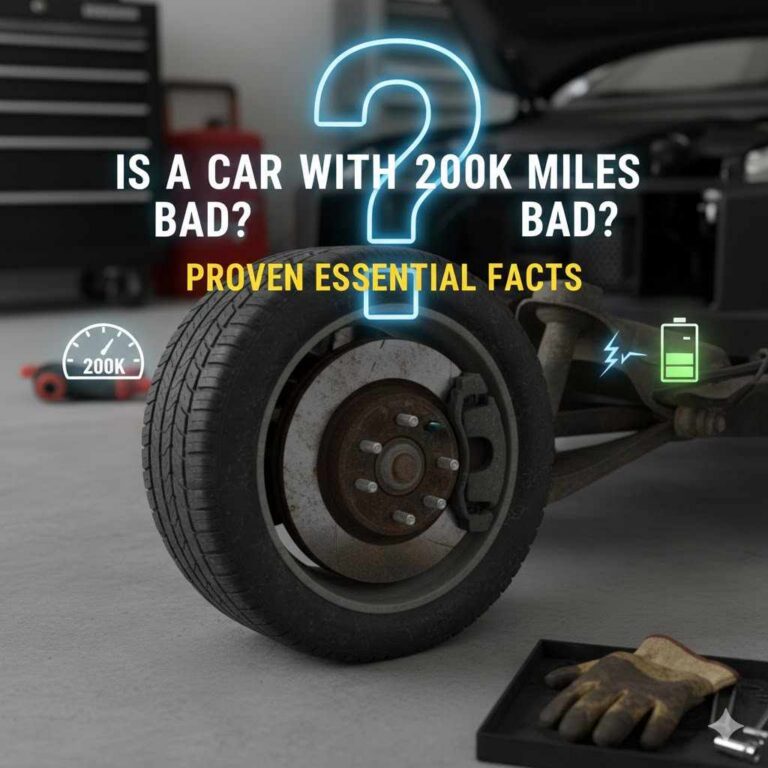Car Stutters When Starting Cold: Quick Fixes & Tips
Car stuttering when starting cold often indicates fuel delivery issues or problems with the ignition system. Other potential causes include a weak battery or faulty sensors.
Experiencing a stutter when starting your car can be frustrating, especially in cold weather. This issue typically arises due to various factors affecting the engine’s performance. Cold temperatures can impact the fuel mixture and battery efficiency, leading to rough starts.
Identifying the root cause early on can save you time and money on repairs. Regular maintenance, such as checking the battery and fuel system, can help prevent stuttering. Understanding the common reasons behind this problem can keep your vehicle running smoothly. Stay informed and proactive to ensure your car starts reliably, regardless of the temperature outside.
Introduction To Cold Start Issues
Cold start issues can cause your car to stutter or hesitate. This can be frustrating for drivers. Recognizing the common symptoms helps in addressing the problem early.
- Engine stalling during initial start.
- Rough idling or shaking when the engine is cold.
- Difficulty in accelerating after starting.
- Unusual noises from the engine upon starting.
Addressing these problems early is crucial. Ignoring them can lead to more serious issues. Repair costs may increase over time. Ensuring your car runs smoothly saves you time and money.
Understanding Your Car’s Cold Behavior
The temperature plays a big role in how engines work. Cold weather can make engines stutter. This happens because oil is thicker when it’s cold. The fuel mixture may also not ignite properly. Cars can react differently in cold conditions.
Some cars start easily, while others struggle. Older models may have more trouble than newer ones. Fuel-injected engines often perform better in cold weather. They adjust the fuel-air mixture automatically. Car maintenance is key for cold starts. Regular checks on battery and fluids help. Keeping the engine warm can make starting easier.
Quick Fixes For Immediate Relief
Checking the battery health is vital. A weak battery can cause stuttering. Use a multimeter to check voltage. A fully charged battery shows around 12.6 volts. If the reading is lower, consider replacing it.
Inspecting spark plugs for wear is essential. Worn or dirty spark plugs can lead to starting issues. Check for cracks or heavy deposits. Clean them if they are dirty. Replace any spark plugs that look damaged. This simple check can improve engine performance.
Fuel System Checks
Fuel filter inspection is essential for a smooth start. A clogged fuel filter can restrict fuel flow. This can cause your car to stutter, especially in cold weather. Regular checks help avoid this issue.
Quality fuel is crucial during winters. Poor fuel can lead to poor performance and starting problems. Always use fuel with the right additives. These additives help prevent freezing and improve combustion.
Taking care of your fuel system ensures your car runs well. Regular inspections can save you from costly repairs.
Electrical Component Inspection
Checking the starter motor condition is essential. A weak starter can cause the engine to stutter. Look for signs of wear or damage. Make sure the connections are tight. Corroded terminals can also affect performance.
Alternator performance in cold weather is crucial too. Cold temperatures can reduce efficiency. A weak alternator may not charge the battery properly. Test the voltage output. It should be between 13.8 to 14.4 volts.
| Component | Check For |
|---|---|
| Starter Motor | Wear, damage, tight connections, corrosion |
| Alternator | Voltage output, efficiency in cold |
Engine Oil And Its Impact On Cold Starts
Choosing the right oil viscosity is crucial for your engine. Thicker oil can cause starting issues in cold weather. A lower viscosity oil flows better when it’s cold. This helps your engine start more easily.
Regular oil changes are important for smoother starts. Old oil can thicken and become less effective. Fresh oil ensures proper lubrication and function. Always check your owner’s manual for the best oil type.
| Viscosity | Temperature Range | Benefits |
|---|---|---|
| 5W-30 | -20°C to 30°C | Good for cold starts and fuel efficiency |
| 10W-40 | -10°C to 40°C | Better for warmer climates and high mileage |
Preventive Measures And Maintenance Tips
Prepare your car for winter with this seasonal maintenance checklist. Check the battery to ensure it has enough charge. Inspect the coolant levels and add antifreeze if needed. Examine the tires for proper tread depth and inflation. Replace old wiper blades to improve visibility during snow and rain.
Change the engine oil and use a winter-grade oil for better performance. Clean the fuel system to prevent stalling. Test the brakes to ensure they work effectively in icy conditions. Keep the exhaust system clear to avoid dangerous fumes inside the car.
Stock your car with emergency supplies. Include a shovel, blanket, and flashlight. Carry extra food and water for longer trips. Finally, have a first-aid kit ready for any emergencies.
When To Seek Professional Help
Cold start issues can signal serious problems with your car. Stuttering or failure to start may indicate a faulty battery or fuel system issues. Always check for warning lights on the dashboard. These lights can help identify the problem.
Seeking help from a professional mechanic is essential for complex issues. A trusted mechanic can diagnose problems accurately. They have the right tools and experience. DIY fixes may sometimes lead to further complications.
Finding a reliable mechanic is crucial. Look for reviews and ratings online. Ask friends and family for recommendations. A good mechanic will provide clear information about repairs needed.
Frequently Asked Questions
Why Does My Car Stutter When I Start It Cold?
A car may stutter when starting cold due to issues like weak battery, faulty spark plugs, or fuel system problems. Cold temperatures can thicken engine oil, making it harder to start. Regular maintenance can help prevent these issues and ensure smooth starts.
Why Does My Engine Sputter When I Start It Cold?
Your engine may sputter cold due to insufficient fuel flow or air intake issues. Dirty spark plugs or a failing fuel pump can also cause this problem. Temperature affects engine components, leading to rough starts until the engine warms up.
Regular maintenance helps prevent sputtering.
Why Does My Car Stutter When Starting But Runs Fine?
A stuttering start can indicate a weak battery, faulty spark plugs, or a clogged fuel filter. These issues disrupt the engine’s initial power but don’t affect its performance once running. Regular maintenance can help prevent these problems and ensure smooth starts.
Why Does My Car Shake When I Start It Up Cold?
Cold starts can cause your car to shake due to engine components not warming up properly. Thick oil and fuel mixture inconsistencies contribute to this issue. Vibrations typically decrease as the engine reaches its optimal temperature. Regular maintenance can help minimize these symptoms.
Conclusion
Experiencing a cold start stutter can be frustrating. Identifying the underlying cause is key to resolving the issue. Regular maintenance, like checking your battery and fuel system, can help prevent problems. Stay proactive to ensure your vehicle runs smoothly in any weather.
A little attention goes a long way in car care.






